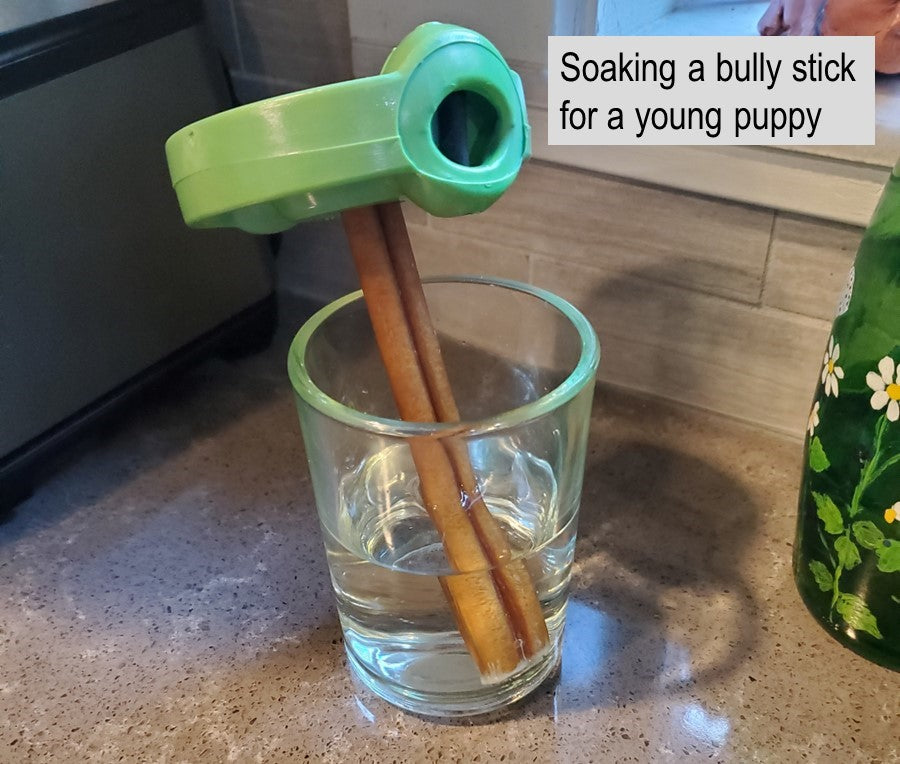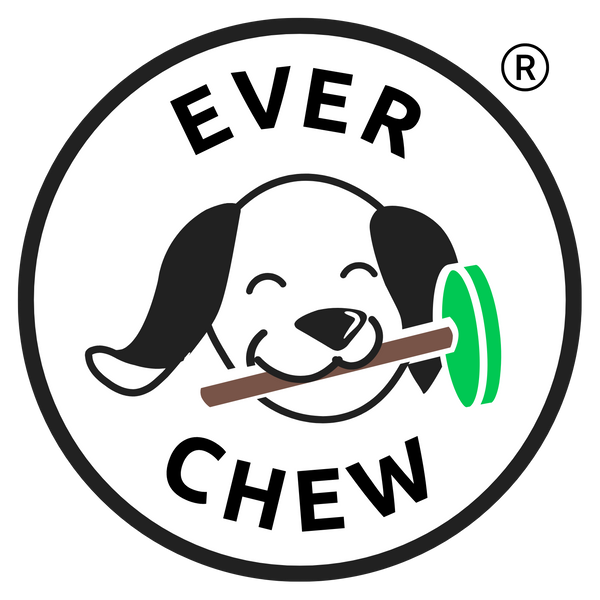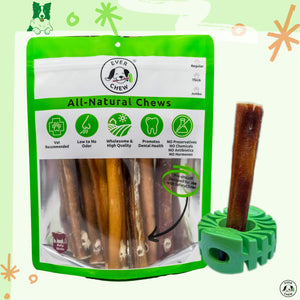Are bully sticks safe for my puppy?

Are bully sticks safe for my puppy?
The answer depends on the puppy's age and/or if you pre-treat the chew. But either way, an EverChew holder is also required to keep the pup safe.
For older puppies:
Puppies adult teeth begin to come in around 12-16 week. When these adult teeth start pushing in, that's when the teething puppies go though another strong cycle of chewing on everything try to relieve the discomfort. At that point, bully sticks are okay to give because they have some emerging adult teeth that are strong enough for bully sticks. And the baby teeth are getting worked out anyway whether by a kong, rope, or a bully stick.
For younger puppies:
Before puppies start teething at 12-16 weeks, all chews must be soft enough not to damage their weaker baby teeth. Hard toys like those made from nylon and coffeewood are too hard--they fail the fingernail dent test (American Animal Hospital Association). Also while those puppy teeth are razor-freaking sharp, their jaw muscles haven't developed enough to tear up (too much) softer dog toys. Also, giving an unprepared bully stick to a puppy before they teeth isn't recommended since it fails the fingernail dent test. But you can soak the bully stick to soften it (see below).
Pre-softening a bully stick
As any dog chews on a bully stick, their saliva softens the dried protein so that their teeth can tear and scrape it off in tiny bits. If you ever handled a chew-on bully stick, you'll know that the chewed on part is white and a little stringy, just below that the stick is still brown but fingernail-dentable, and then just below that the stick is still rock-hard.
So what we found works for puppies (and elderly dogs with soft teeth) is to pre-soften the outer potion of the bully stick just a bit.

If you soak the bully stick in water for 15-60 minutes (depending on temperature), then the outer layer gets soft enough to dent with your fingernail. And the inner parts are softened by their saliva as they work towards it. This soaking method is a common practice mentioned for other types of hard chews (Lone Tree Vet Center). So we've been comfortable doing that, but you should ask your vet before you try it.


